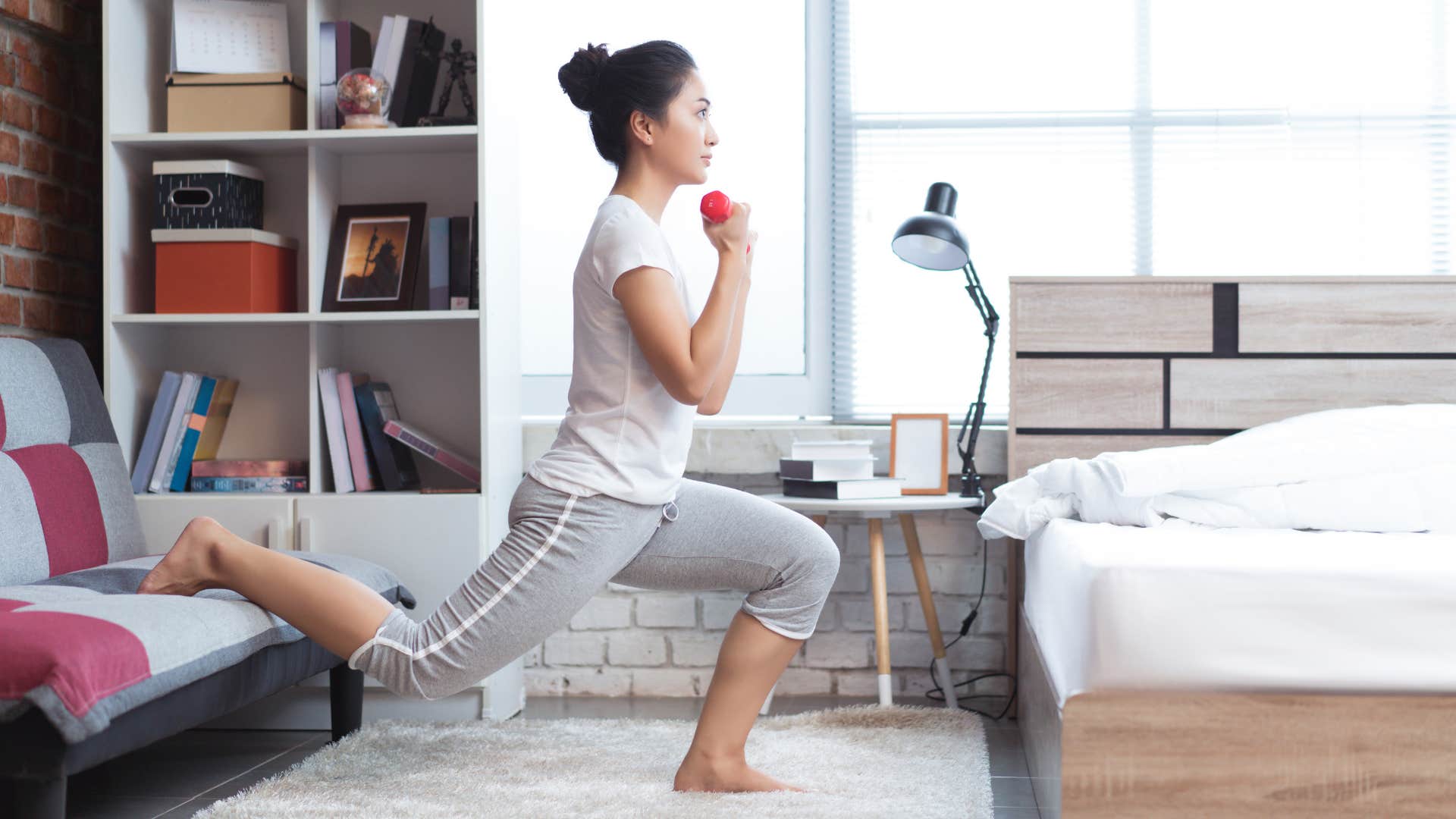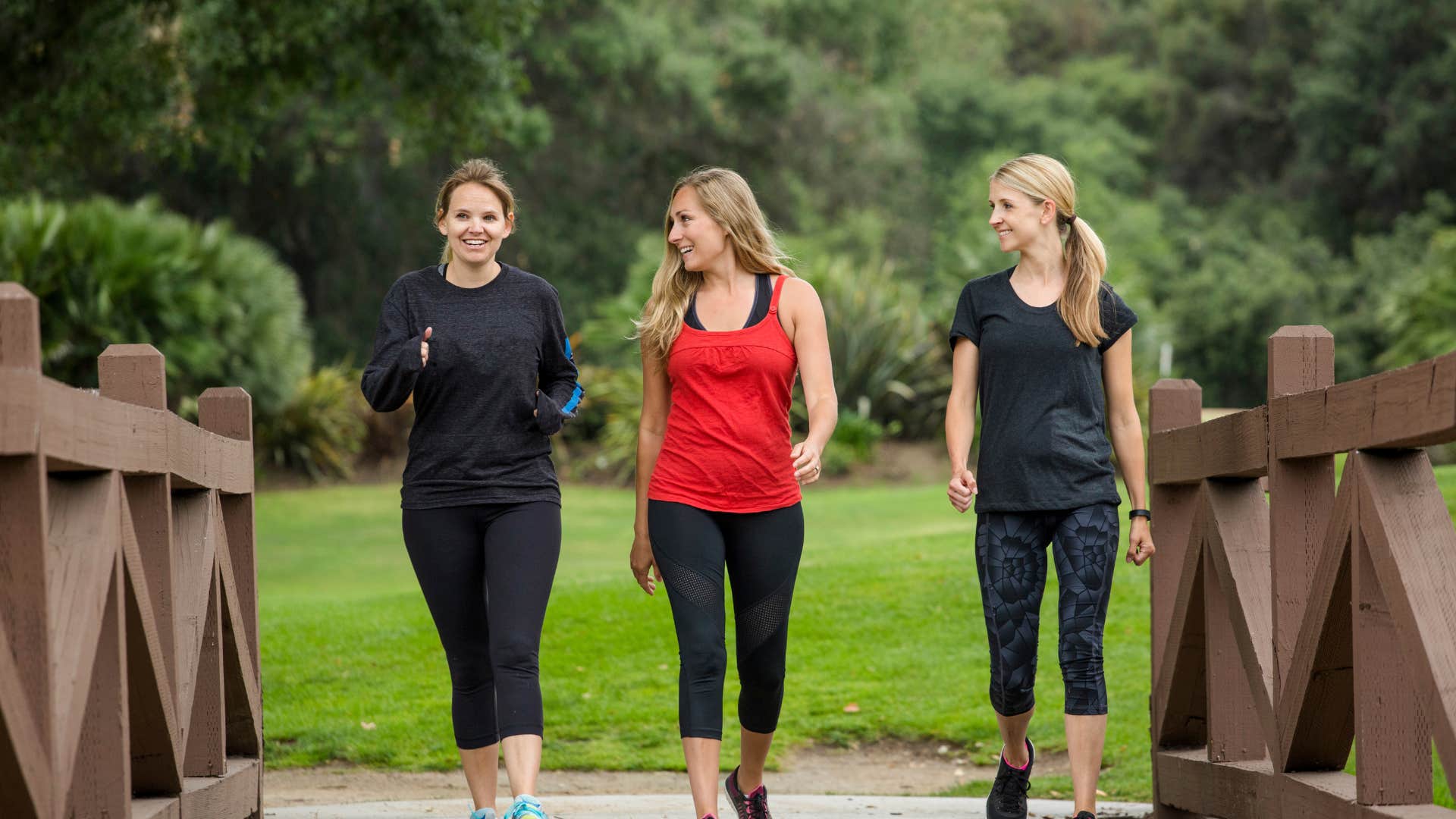Lazy People Who Become Highly Disciplined Often Do These 6 Things Every Morning
Morning routines help transform procrastinators into focused go-getters.
 Rido | Unsplash
Rido | Unsplash When you finally get up after the second (or third) hit of your snooze button and see a good morning text from your friend who has already finished a spin class, you can’t help but roll your eyes. It’s not that you’re not impressed with them — it’s that you haven’t found a way to convince yourself to work out consistently. Or to be clear: You simply hate, hate, hate working out.
While some researchers suggest it’s determined in our genes, most fitness professionals agree your ability to maintain an exercise routine — no matter how much you dislike burpees, push-ups, running, and whatnot — is completely in your hands. Whether you believe us or not, take it from these experts who gave us their best advice for those who want to overcome their fitness hatred to lead healthier lifestyles.
Lazy people who become highly disciplined often do these 6 things every morning:
1. Make a mental commitment
 ViDI Studio / Shutterstock
ViDI Studio / Shutterstock
More so than making it through a mile of running without resting and lasting through an entire yoga sequence, fitness expert Michele Gordon Levy says your attitude is everything.
That’s why she recommends starting your morning by committing. You can begin small and work your way up from there, focusing on manageable shifts and swaps that help to form a habit.
“Every day you should seek out physical activities that make you feel good — such as walking the stairs instead of taking the elevator, stretching in the morning, or prioritizing workouts in your schedule,” she explains.
“View exercise has something that fuels you, something that benefits you, something that benefits your whole life and those around you. Find workouts you either enjoy doing or enjoy how you'll feel after, and stick to them.”
2. Commit to working out first thing
 Maria Markevich / Shutterstock
Maria Markevich / Shutterstock
We all prefer a lazy Sunday over a 6 a.m. sprinting class, but co-founder of Orangetheory Ellen Latham stresses the importance of squeezing in a workout first thing in the morning.
“The early morning classes are the busiest because people stay more committed when they complete their workout early. Planning to exercise later in the day can be tough, as there is a higher chance of finding an excuse not to go, especially after a long, tiring day at work,” she shares.
While it’s likely you’ll dread the sound of your iPhone’s early morning beep, within a month, it might become a habit you actually enjoy.
A study in the British Journal of Sports Medicine found that morning exercise improves attention, visual learning, and decision-making skills. Morning exercise activates metabolic and physiological functions, leading to increased energy and a more positive psychological state.
3. Complete a challenge
 TORWAISTUDIO / Shutterstock
TORWAISTUDIO / Shutterstock
For most people who are attempting to bite the bullet and actually use that gym, they pay for every month, the very act of walking through the front door can be overwhelming.
Without a personal trainer or hands-on instruction, figuring out machines, moves, and rhythm can become yet another hurdle that extinguishes your fire.
Fitness expert and coach Nadia Murdock recommends signing up for a social or app challenge that will help you create the groove you need to persist.
This type of tactic is impactful whether you’re giving fitness a chance for the first time or you’re getting back on the bandwagon.
“For beginners, there are online workout plans with simple moves like squats, planks, and push-ups. This offers an achievable task that will hopefully turn into a regular habit,” she explains.
“For those who have worked out in the past but just need to get back on track, there are more elaborate challenges that include full workouts for all fitness levels.”
4. Work out at home
 ORION PRODUCTION / Shutterstock
ORION PRODUCTION / Shutterstock
It’s not that you detest working out. It’s that it requires a ton of energy: signing up for a class, packing a bag, commuting, showering, and still managing to pick up Starbucks on your way into the office. Whew.
Gordon says the preplanning is often a big enough excuse to dissuade people from making it to a class or to their trusty treadmill, making an at-home workout more appropriate for fitness-haters.
“You can get classes and trainers on demand and live-stream with all sorts of platforms these days. There are options for even a 20-minute workout, giving you zero excuses not to sweat,” she says.
Home-based workouts can be a feasible and accepted approach to introduce physical activity and enhance wellness. Research has also found that working out at home provides benefits such as reduced symptoms of depression and anxiety, improved mood, increased self-esteem and confidence, better sleep quality, and enhanced cognitive function.
5. Try a partner sport or join a team
 PeopleImages / Shutterstock
PeopleImages / Shutterstock
Especially when you’re playing wingwoman at the bars or venturing through an unfamiliar new city, there’s strength in numbers. The same goes for fitness, according to personal trainer and entrepreneur Eraldo Maglara.
Since working out solo might not be fun for you, roping more pals into your cause could be the secret strategy that makes a difference in your mindset.
He suggests looking for intramural teams within your community or choosing sports that require another person — like tennis, badminton, or squash — which makes it more likely you'll show up.
How come? Other folks are counting on you — and hey, it’s more fun!
6. Take your workout outdoors
 Brocreative / Shutterstock
Brocreative / Shutterstock
Can’t imagine completing a military-style boot camp, but love the feeling you get when you reach the top of a mountain?
Apart from the Instagram-worthy selfie opportunities, Gordon says many people who traditionally dislike fitness are inspired by activities that, well, don’t feel like working out. Instead, they feel like adventuring.
“Find a trail or hiking group near you, get outdoors, and move. Exercising outdoors has been associated with greater feelings of increased energy and revitalization and decreased tension and depression,” she explains.
Studies have even shown that a short walk in a natural setting can decrease repetitive negative thoughts. Engaging with the natural world through your senses provides a holistic experience that positively impacts the mind.
No matter what gets you moving, try one of these tactics to live your longest — and yep, sweatiest — life. After all, there’s only so much Netflix you can binge.
Lindsay Tigar is a seasoned travel and lifestyle journalist, content strategist, and editor with more than a decade of experience.

